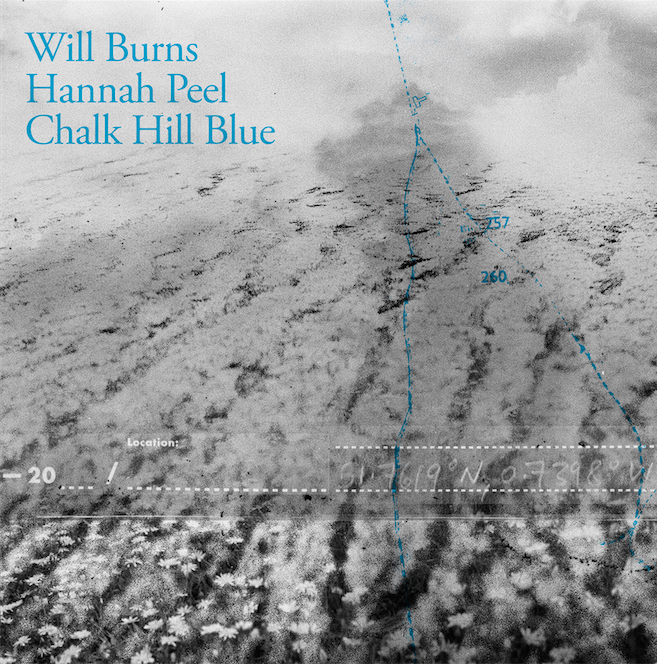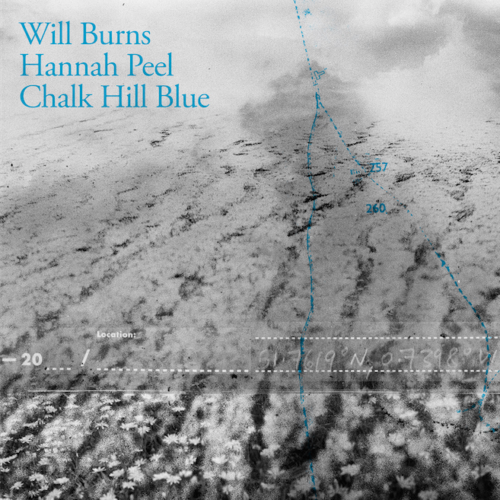Poet Will Burns and musician Hannah Peel collaborate on a record of electronic music and spoken word that, at first glance, might seem pastoral and escapist. Yet it quickly reveals itself to be inextricably tangled with and influenced by the dysfunctional, dismaying reality that we seem to be living in.
Hannah Peel is a composer, singer and synth champion who specialises in analogue soundscapes that Delia Darbyshire or Daphne Oram would have appreciated. Regular readers of tQ will know that her back catalogue is a fascinating compendium of albums informed by interests in neurology, the universe and social change. The Broken Wave sounded something like a Northern Irish Joanna Newsom, Awake But Always Dreaming was darker and dramatic, influenced by Herrmann and Morricone. Mary Casio: Journey to Cassiopeia was a concept album that made gorgeous use of colIiery brass, and was given a cosmic remix as Particles In Space. Not content with covering the niches, Peel is also a Spotify star with a toy piano-esque cover of ‘Tainted Love’ that has picked up 10 million plays.
This eclecticism is underpinned by an analogue purity of sound that informs Chalk Hill Blue, an album named for the species of butterfly, but encompasses so much more as it takes flight. Will Burns, a poet with a growing reputation, writes work that often probes dislocation through landscape. He reads his poetry alongside Peel’s compositions, the words and the music weaving in and out of one another to entrancing and unsettling effect. His tone is blunt and regretful tone, leaves no room for sentimental illusion. Peel’s electronics seem to express the unspoken, swelling urgently in the background as Burns tells stories of old age, disease, disappointment, "zero hour drinking sessions" and impaired relationships. His ability to isolate truths about being is exceptional as, for example, on ‘The Night Life’, he intones "To beat exactly a billion times if unhindered is the only application of the heart" as, in the background, drums chug in response.
On Chalk Hill Blue landscape is the setting for the impossible task of living, whether as a hostile condition – "The madness, really, of a dawn chorus" – or a place that offers no possibility of belonging, however drunk you get. Burns reflects, darkly, on "The slick beds of somebody’s home county." The album is specific about context, with tracks called ‘May 9th’, ‘February’ and ‘Ridgeway’, but these timestamps are only clues to a fragmented narrative. We catch tantalising glimpses of a story, moments brought into focus under Burns’ piercing gaze. Meanwhile, Peel’s music is hypnotic, whether brooding quietly or surging into a series of gradually overlapping and separating beats. On ‘Change’, her synthesisers sound like a forest fire, a distant orchestra, a swarm of insects and a flock of birds. ‘Summer Blues’ uses sad pianos, and ‘February’ a chirping bassoon. The title track is an all-instrumental piece with synthesisers that drop neat lines of lone, heart-stopping notes.
Chalk Hill Blue is another fruitful divergence for Peel whose work is fast becoming something exceptional. Burns is a powerful writer, who tells us some of what need to hear in our anxious era of species collapse and climate change. His dispatches from the hills and pub gardens of Southern England anatomise the land effectively and concisely as Peel conjures spirits from the implacable earth, and sends them rolling across the downs, like a drifting mist.



